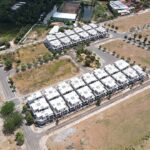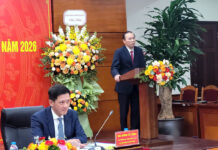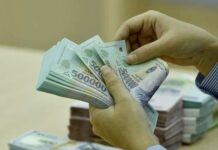The leadership of Soc Trang province proposes to the Prime Minister for support in investing in a 14-kilometer road connecting Dai Ngai Bridge to the existing National Highway 60. This road is expected to cost around VND 1,870 billion and will be funded by the surplus from the Dai Ngai Bridge construction project on National Highway 60 in the provinces of Tra Vinh and Soc Trang. This initiative aims to enhance the efficiency of the Dai Ngai Bridge and upcoming infrastructure projects, including the Chau Doc-Can Tho-Soc Trang expressway (phase 1) and the improvement of National Highway 91B. By improving connectivity within Soc Trang province and neighboring Bac Lieu and Tra Vinh provinces, the region will unlock new development opportunities and leverage its unique strengths.
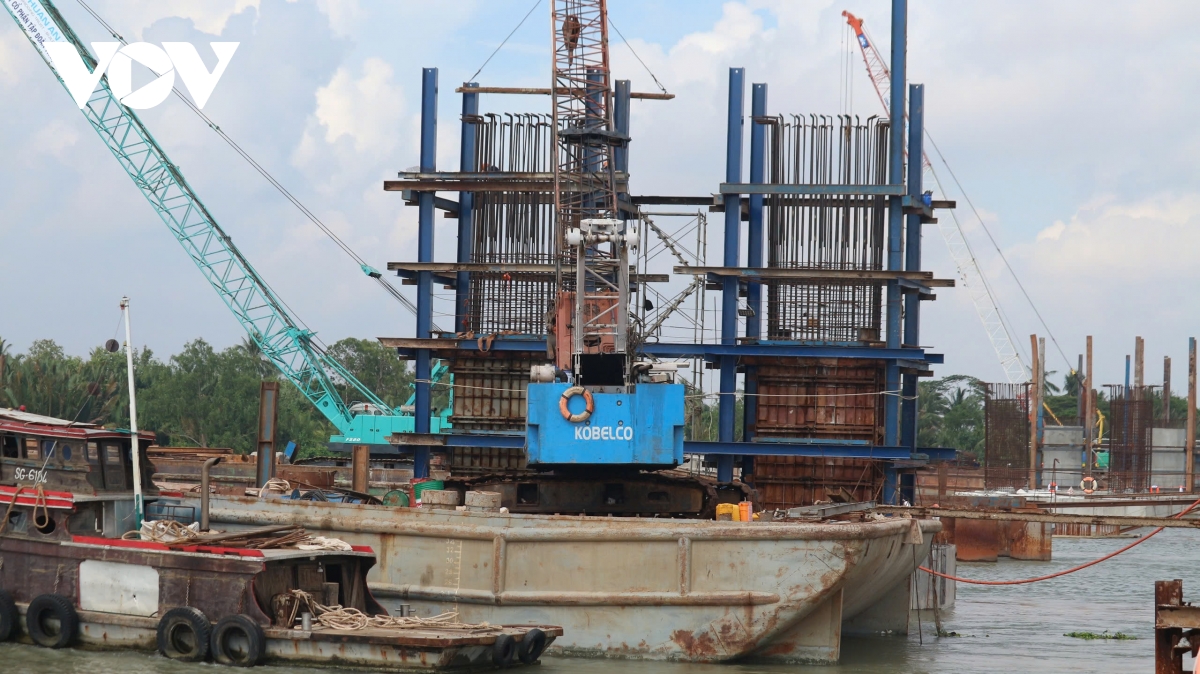
Dai Ngai Bridge under construction
In their proposal, the provincial leaders emphasized the approved transport development plans, including the new National Highway 60, which will extend from the Dai Ngai Bridge project across the Hau River to the existing National Highway 60. Therefore, investing in this connecting road is both necessary and urgent. They further highlighted the benefits of this investment, including improved connectivity within the province and the Mekong Delta region, easier access to National Highways 1, Quan Lo-Phung Hiep, and 61B, and enhanced transportation efficiency. This road will also facilitate inter-regional travel between the center of Soc Trang city and other provinces in the Mekong Delta and Ho Chi Minh City, boosting socio-economic development and accelerating the region’s economic transformation towards industrialization and modernization.
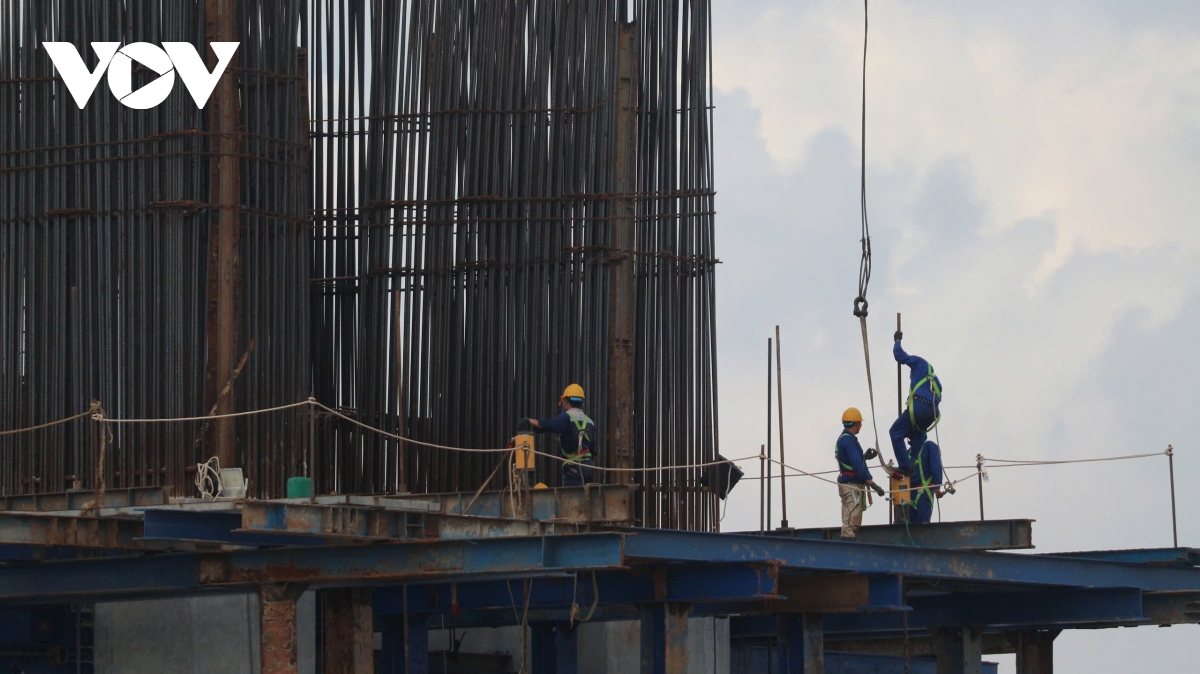
Dai Ngai Bridge connecting Soc Trang and Tra Vinh provinces
Since October 2023, the construction of the Dai Ngai Bridge on National Highway 60, spanning Tra Vinh and Soc Trang provinces, has commenced. Upon completion, this bridge will significantly contribute to economic restructuring, social development, regional connectivity, and improved living standards for the people of the province and the surrounding areas.
Why Do Lending Institutions Hesitate to Finance Agriculture?
The Mekong Delta region is highly vulnerable to the impacts of climate change, including rising sea levels, saltwater intrusion, and flooding. As per Mr. Tran Viet Truong, Chairman of the Can Tho People’s Committee, these risks make lending institutions hesitant to provide loans as the agricultural sector in this region is heavily dependent on weather and nature.
Unlocking the Potential: Elevating Ho Chi Minh City’s Transport Network with an Overpass Expansion Project Worth 35,000 Billion VND
National Highway 13, the North-South axis, the Binh Tien bridge and road are three of the five key gateway expansion projects undertaken in a Build-Operate-Transfer (BOT) format, as per Resolution 98, piloted by Ho Chi Minh City.
Is Agricultural Land in Ho Chi Minh City Still an Attractive Investment Prospect?
The pressure to clear inventory and slash prices is mounting for investors in agricultural land on the outskirts of Ho Chi Minh City. However, this urgency to offload investments is not reflected in the market’s transaction volume. As land investors fret over potential losses, service businesses operating on this land are breathing a sigh of relief, thanks to the newfound legal framework that has unlocked opportunities.
The Great Land Use Fee Confusion: When Agencies Disagree, Citizens Pay the Price
The Institute of Resource Economics and Environment has pointed out a discrepancy between Decision 79 by the Ho Chi Minh City People’s Committee and Document 10640 issued by the Ho Chi Minh City Tax Department. The institute believes that there is a lack of alignment in interpretation, implementation, and application between the two documents, ultimately putting citizens at a disadvantage.





























